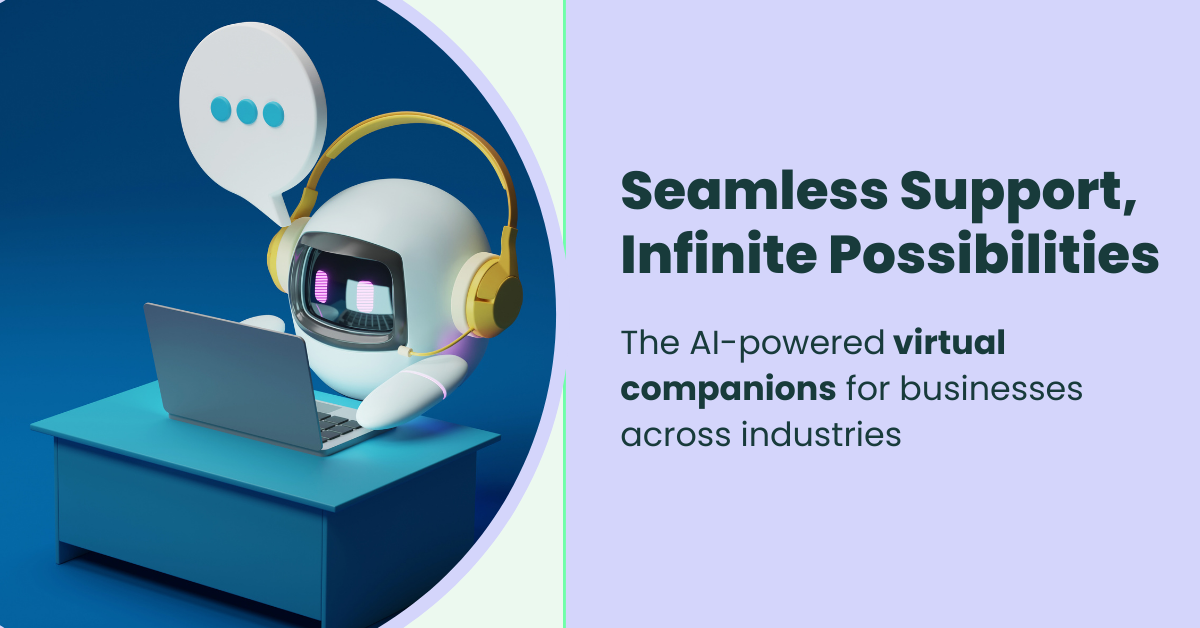In today’s world, time is one of the most valuable resources, and enhancing productivity is critical to success. AI-powered personal assistants are playing a significant role in this shift, offering advanced solutions for managing tasks and simplifying everyday activities. These tools, driven by cutting-edge technology, are revolutionizing the way people and businesses function. But how effective are they? This detailed guide explores the potential of AI-powered personal assistants, their advantages, limitations, and the future of this innovative technology.
Understanding AI-Powered Personal Assistants
AI-powered personal assistants are intelligent systems that use artificial intelligence to perform various tasks, offer services, and provide personalized recommendations. Unlike conventional productivity tools, these assistants adapt to user behavior and improve over time, offering highly personalized experiences.
Key Features:
- Natural Language Processing (NLP): Facilitates smooth communication via text or voice.
- Automation of Tasks: Manages repetitive activities like reminders, emails, and meeting schedules.
- Contextual Awareness: Understands user preferences and habits to deliver tailored support.
- Device Synchronization: Connects seamlessly with smartphones, smartwatches, and smart home devices.
- Machine Learning: Continuously learns and evolves through user interaction and data analysis.
Examples include well-known tools like Apple Siri, Google Assistant, Amazon Alexa, and Microsoft Cortana.
Advantages of AI-Powered Personal Assistants
1. Optimized Time Management
AI assistants excel at handling schedules, organizing tasks, and sending reminders, freeing users to focus on important work.
Example: Google Assistant can identify free time slots in your calendar and suggest optimal meeting times.
2. Enhanced Productivity
With automation and intelligent recommendations, users can delegate routine tasks and concentrate on priorities.
Example: Alexa can prepare a shopping list, order essentials online, and notify you upon delivery.
3. Streamlined Communication
These tools draft messages, send texts, and even transcribe meetings, ensuring efficient communication.
Example: Cortana summarizes meeting discussions and shares the notes with participants.
4. Customized Recommendations
AI assistants adapt to individual preferences, suggesting activities, purchases, or routines tailored to the user.
Example: Siri curates playlists or podcasts based on your listening patterns.
5. Accessibility Support
AI assistants provide significant help for individuals with disabilities, enabling them to navigate technology more effectively.
Example: These tools offer voice-guided navigation for visually impaired users.
Challenges and Drawbacks
While AI-powered personal assistants offer numerous benefits, there are some challenges to consider:
1. Data Privacy Issues
The vast amounts of personal data collected by these tools raise concerns about privacy and security.
Solution: Opt for assistants with robust encryption and transparent privacy policies.
2. Dependence on Internet
Many assistants rely on stable internet connections, which can limit their functionality in offline scenarios.
Solution: Look for options offering offline capabilities for key tasks.
3. Complexity in Understanding Commands
Despite advancements, some assistants still struggle with ambiguous or highly contextual instructions.
Example: Misinterpretation of slang or nuanced language.
4. Costs
Premium features often come at an additional expense, including subscriptions and device integrations.
Solution: Evaluate the value of paid features before committing.
5. Over-Dependence on AI
Excessive reliance on AI may hinder critical thinking and decision-making skills over time.
Solution: Use AI assistants to complement, not replace, human effort.
Top AI-Powered Personal Assistants in 2025
| Assistant | Unique Features | Source |
|---|---|---|
| Google Assistant | Advanced multilingual support, seamless Google integration, task automation | Google Official |
| Apple Siri | Voice commands, Apple ecosystem compatibility, enhanced data privacy | Apple |
| Amazon Alexa | Comprehensive smart home controls, app integration, music streaming | Amazon |
| Microsoft Cortana | Office 365 integration, meeting note transcription, task prioritization | Microsoft |
| Samsung Bixby | SmartThings sync, versatile routines, voice and text command options | Samsung |
The Road Ahead for AI-Powered Personal Assistants
1. Enhanced NLP
Future assistants will interpret user emotions and intentions more effectively, enabling meaningful interactions.
2. Expanded Device Integration
AI assistants will increasingly integrate with wearables, health trackers, and augmented reality devices for a cohesive user experience.
3. Improved Privacy Features
To address concerns, developers will focus on advanced data encryption and local processing.
4. Proactive Assistance
AI tools will evolve to predict user needs and act without requiring explicit commands.
5. Emotional Intelligence
Incorporating emotional understanding will enhance interactions, making AI assistants more empathetic and relatable.
Conclusion
AI-powered personal assistants have become indispensable tools, revolutionizing how tasks are managed and productivity is enhanced. While challenges like data security and reliance on connectivity remain, the benefits make them invaluable for most users. As technology progresses, these assistants are expected to become more sophisticated, proactive, and integral to daily life. Whether you’re looking to optimize your work routine, simplify personal tasks, or explore advanced functionalities, investing in an AI-powered assistant could redefine your productivity.






0 Comments